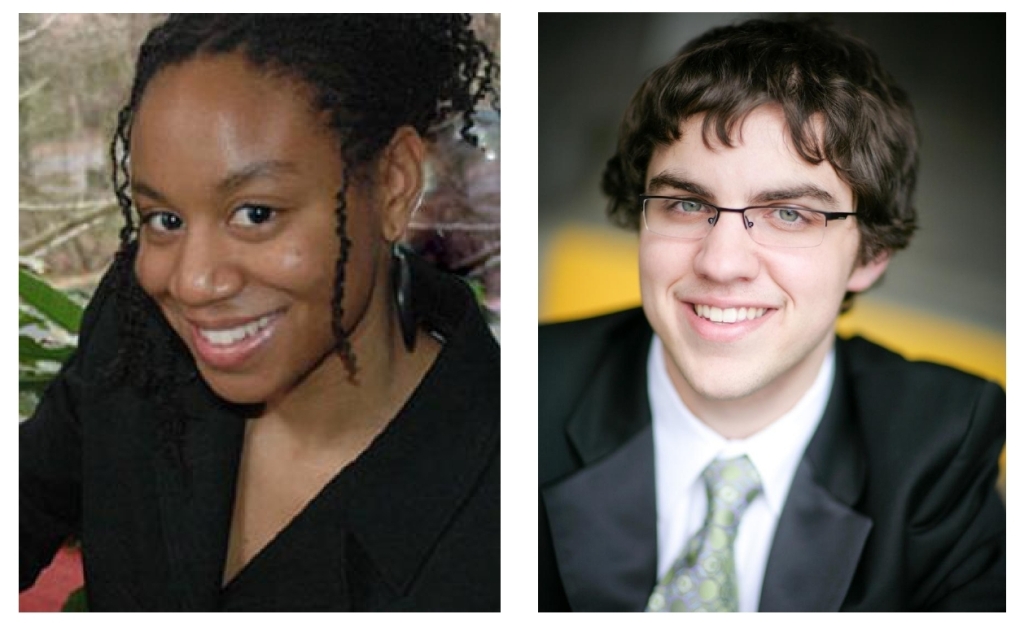“Where Are They Now?” – The Next Steps for Margaret Stewart Lindsay recipients
We are celebrating the achievements and future developments of our 2010 Margaret Stewart Lindsay Arts Leadership Award recipients. These five individuals represent the first cohort of From The Top’s Margaret Stewart Lindsay Award (MSL) projects and are all inspiring examples of leadership. Now, one year after it all started, we ask our MSL recipients to reflect on their journey and what they’ve learned along the way.
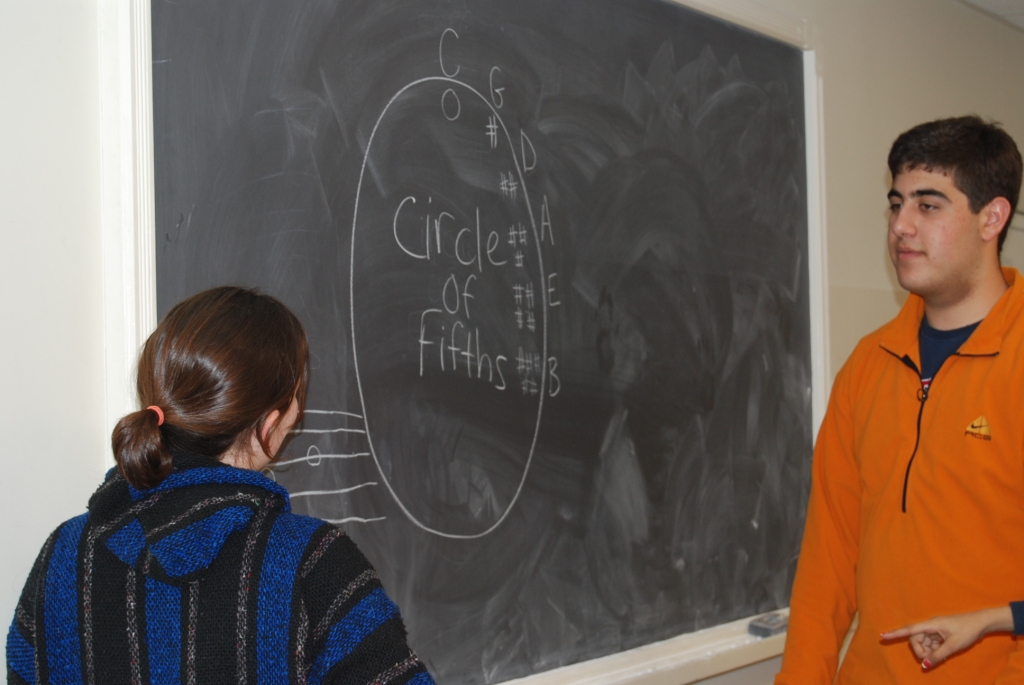 First we start with Jacob Shack, who applied for the award on behalf of the Andover-Lawrence Strings Program as the senior coordinator for the program. The grant money supplied new materials as well as training for the student teachers. Now a freshman at Harvard University, we asked him about his transition to college and what he’s taken away from the experience:
First we start with Jacob Shack, who applied for the award on behalf of the Andover-Lawrence Strings Program as the senior coordinator for the program. The grant money supplied new materials as well as training for the student teachers. Now a freshman at Harvard University, we asked him about his transition to college and what he’s taken away from the experience:
I have been at Harvard for almost two months now, and I am finding it exhilarating, intellectually challenging, and sometimes completely overwhelming. Upon my first visit back to Andover , I made sure to tell my friends, who are seniors this year, that there is no possible way you can be prepared for what college will throw at you.
I am a member of the Harvard-Radcliffe Orchestra, which, similarly to the Phillips Academy orchestras, rehearses on Tuesday and Thursday evenings. I am also taking a chamber music class, in which we receive one coaching a week and rehearse on our own time. As for the new stuff, I am “comp”-ing The Harvard Crimson, which is the only daily newspaper in the city of Cambridge.
Next semester, I plan to join a program called “Harmony,” which is very similar to the Andover Lawrence Strings Program that I coordinated at Phillips Academy. It consists of Harvard students providing private lessons on stringed instruments and piano to middle- and high-school aged children from Cambridge, with periodic concerts throughout the year. Although I do not have time for it this semester, I plan to build it into my schedule come Spring. Andover Lawrence Strings seems to have left an indelible mark on me, something that I can’t escape, even if I tried.
Stay tuned as we follow this inspiring program and the changes put in place through the award!
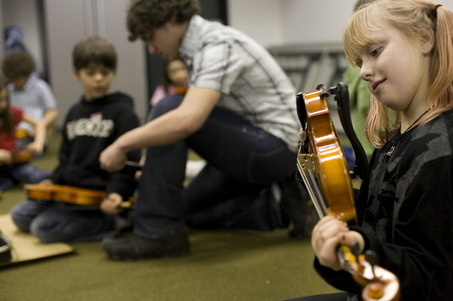 Our next MSL spotlight is Griffin Gaffney, a current sophomore at Harvard University. While still in high school Griffin developed the inspiring program Classical Chaps – a free violin lesson program for students grades 3 through 5. We asked Griffin to share more about what he learned from the program:
Our next MSL spotlight is Griffin Gaffney, a current sophomore at Harvard University. While still in high school Griffin developed the inspiring program Classical Chaps – a free violin lesson program for students grades 3 through 5. We asked Griffin to share more about what he learned from the program:
Classical Chaps started out as a small thought in the back of my mind but turned into something that continues to inform the choices I make everyday, especially with regards to school, my future and current projects here in Boston. It taught me quite a bit about myself, my community, how to be a leader and teacher, figure out how to get 3rd-5th graders to think that playing violin is fun– the list goes on. That being said, I find the following two points to be very pertinent:
- Using What’s Already in place: Classical Chaps really taught me that the success of the program truly was in the fact that it pooled existent resources close to my community in a way that was new, effective and exciting.
- Don’t Forget Your Starting Point: It’s important to look back at where you started and constantly evaluate your emotional satisfaction with how far you have come (or not).
Griffin is now working with Harvard classmate Noni Carter to develop an after-school music appreciation and writing class for middle school students in Boston. We asked him to share why he chose this project and what he has learned from the process:
Looking back onto my own years in middle school, I can confidently say that those years were horrendously awkward yet crucially formative. It’s a time when students begin dabbling in different extracurricular, social and cultural groups and start to map out the identity that they will carry with themselves into high school. What happens in middle school seems to hold an especially large amount of importance in a student’s development.
Though Noni has published a book and I have extensive background in music performance, we’re both writers and musicians in our own rights; we saw it as a very fitting idea to combine the two. I think students will gain a very unique, broad base of arts education from our combining of the two art forms. This, I believe, will really allow us to make many obvious connections between art and ‘real life’ in a way that’s more powerful than instrumental instruction on its own.
In the process of developing this project I’ve learned that it’s crucially important to start small. Because of the things I’ve done in the past I sometimes have a false sense of reality in my mind that tells me I can reach exorbitantly high goals. Numbers of students, grant money earned and other such ‘measures’ of success are truly insignificant when considering the passion that is inherent in creating such a project.
- Highlight: meeting with schools. To actually set foot into a school that is eager to host our program and to meet students sets the wheels in motion in my head and garners quite a bit of excitement for what is to come.
- Struggle: getting stuck in the planning stages.
Noni and I spent a lot of time having aimless back-and-forth conversations that were leading us nowhere. After months and months of planning I felt that we were becoming increasingly detached from what we had initially set out to do–work with kids. This is why I think it’s especially important to constantly question one’s intentions and emotional state throughout developing a project. If it doesn’t feel right, there’s probably something wrong.
Unrelated to anything in the actual curriculum or plans we have in place for our program, I’m most excited to dance, be silly and have fun with a group of students. I have come to realize that the best moments in the classroom are often those of celebrating the hard work that students and teachers alike have achieved.
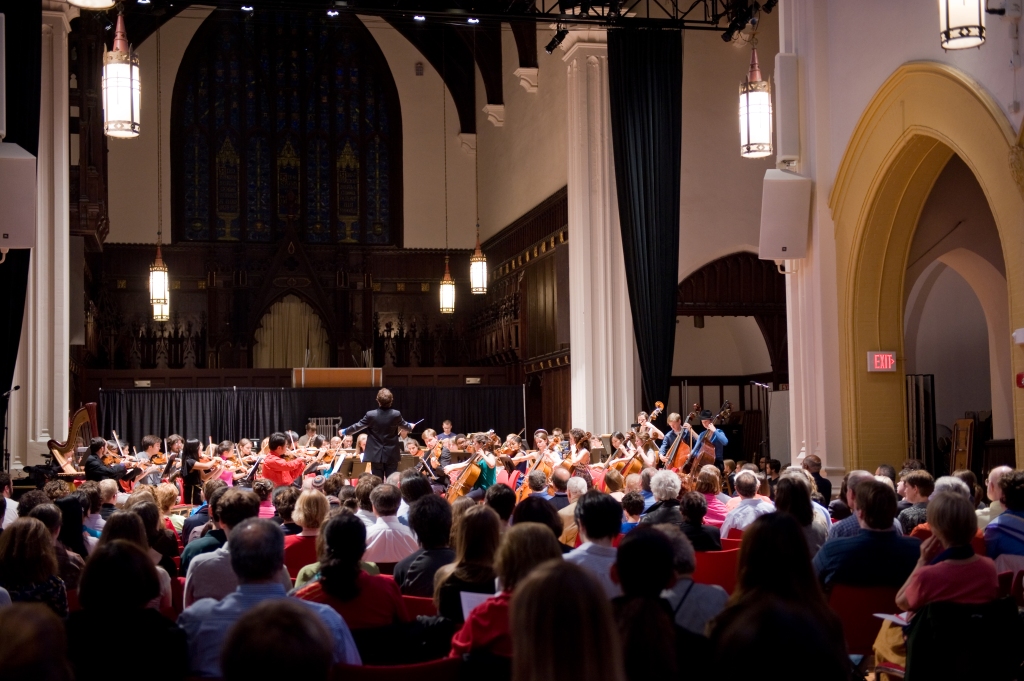 Next we visit an inseparable pair, Brian Kaufman and Michael Reichman, whose project Musical Diplomacy has grown from a small concert series into a genuine proposal for a full-on program that addresses social issues through musical context. In addition to expanding and redefining their program, they have also renamed it The Sounding Board. We asked Brian and Michael a few questions on the developments and future plans for their project:
Next we visit an inseparable pair, Brian Kaufman and Michael Reichman, whose project Musical Diplomacy has grown from a small concert series into a genuine proposal for a full-on program that addresses social issues through musical context. In addition to expanding and redefining their program, they have also renamed it The Sounding Board. We asked Brian and Michael a few questions on the developments and future plans for their project:
We’ve created a bunch of new programs (for Fall 2011/Spring 2012), developed a website (soon to be released!), drafted a strategic plan and mobilized a creative team to help us move forward. We’re in the process of getting legal advice to help us become a 501c3 non-profit organization.
Though the name Musical Diplomacy served us well, we decided it didn’t completely fit our program’s vision. It’s a great name for an academic program in a university. However, we plan to expand our audience to include the broader community that enjoys music, social issues or is just looking for something fun on a Friday night. We feel the name The Sounding Board is more accessible to a broader audience. We’re excited about the road ahead!
We then asked Brian and Michael to individually share where they were post-graduation, and how it feels to now be a part of the “real world” as artists:
Michael: I’m currently Co-Director of Prism & Program Manager at the New Center for Arts and Culture. I artistically oversee and create productions that explore universal themes from a Jewish perspective. It’s very exciting because I get to work with a very talented staff and utilize all aspects of my education (music, writing, entrepreneurship, marketing). I feel very fortunate to make a living producing unique events that have a significant impact on our community.
Brian: I feel so lucky to be working as a Resident Artist at El Sistema Boston, a Venezuela inspired program that uses music as a vehicle for social change. There, I conduct the wind ensemble, teach a music literacy class and serve as the videographer. Since the kids have 3 hours of music 5 days a week, it’s so cool to see how quickly they’re progressing. I’m having a blast!
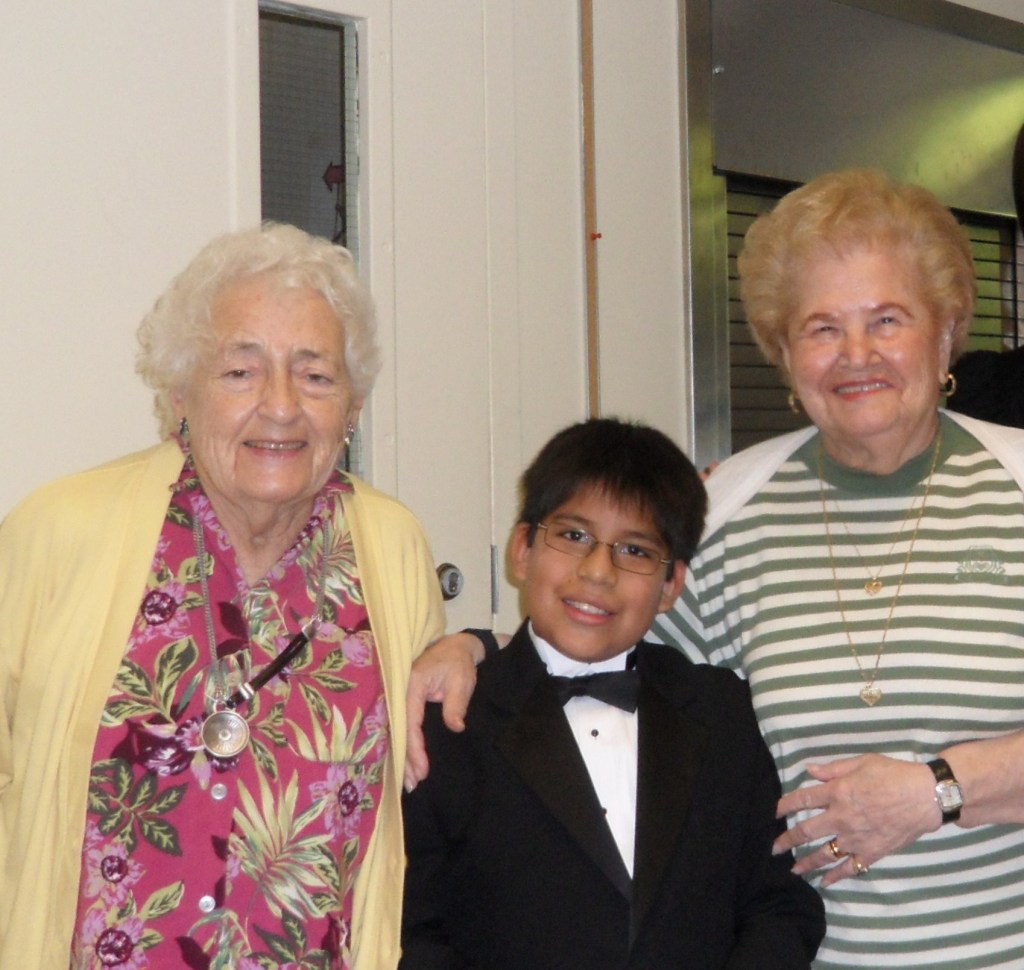 Last, but certainly not least, we wanted to catch up with Noah Kelly, who received an Honorable Mention for his efforts to provide concerts for the residents at the Sophia Snow House retirement community. Noah, now a fifth grade student at Jackson Middle School in Newton, is a part of the community program Project STEP: a string training program for African-American and Latino children who demonstrate exceptional musical talent and interests.
Last, but certainly not least, we wanted to catch up with Noah Kelly, who received an Honorable Mention for his efforts to provide concerts for the residents at the Sophia Snow House retirement community. Noah, now a fifth grade student at Jackson Middle School in Newton, is a part of the community program Project STEP: a string training program for African-American and Latino children who demonstrate exceptional musical talent and interests.
Now, 5 months after receiving the award, Noah’s musical successes are far from over! On July 22nd, Noah performed a recital at Newton’s Golda Meir House for an audience of 75 people – a performance that came about thanks to the recognition of Noah’s accomplishment in the Boston Globe by staff writer Cindy Cantrell. Shirley Goldsmith, a Golda Meir resident highly inspired by the Globe article, contacted Noah and helped to coordinate the July performance at the retirement center. Following the performance, Shirley wrote the following to Cindy Cantrell:
Hi Ms. Cantrell. How can I thank you? Let me count the ways…just wanted to let you know that Noah was here at Golda Meir House yesterday, July 22nd, and he was sensational! He had an audience of 75 people who have not stopped talking about him all day today.
Noah was also named a 2010 Seaman Scholar with Project STEP – a scholarship offered to one to three outstanding students in Project STEP’s Training Division (Grades 1 to 7) to honor the memory of the late George Seaman. We are so excited to see what lies in store for our youngest arts leader!
We are so proud of our 2010 Margaret Stewart Lindsay Arts Leadership Award recipients for all that they have accomplished. Stay tuned for more updates as we continue to follow these inspiring young arts leaders!

